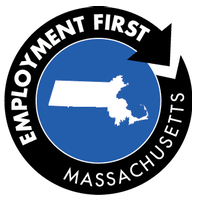Multiple Options for Transition from School to Work: Community Enterprises, Holyoke, MA
Background
Community Enterprises’ Holyoke, MA office partners with about 10 Holyoke-area school systems in providing transition services to high school students with developmental disabilities. Community Enterprises has done outreach to area special education directors to promote its services, while some connections with schools have developed through word of mouth. For example, for this publication we interviewed the superintendent of the West Springfield Public Schools, which started working with Community Enterprises after its special education director heard about Community Enterprises from another director in the same special education collaborative.
Implementation
Community Enterprises’ transition programs help local students access employment opportunities while still in high school:
- ASSET (Achieve Success through Supported Education and Training) is a partnership with Holyoke Community College. Located on the community college campus, this program provides classroom-based vocational education. The curriculum includes job readiness and job development, soft skills, and training in office skills or culinary skills. Students participate in on-campus internships a few hours per week, with past internships taking place in campus food services, the library, the radio station, the bookstore, and the career center. Community Enterprises also helps students begin the search for a job in the community. ASSET provides older students the opportunity to move beyond the high school campus into a more age-appropriate setting and become more independent.
- Transitions is a program for students with more significant disabilities, located in downtown Holyoke and operated in partnership with the local special education collaborative. Students spend half the day in the classroom, working primarily on social, vocational, and self-help skills with teachers. The other half of the day is spent at job sites in the community, with individual job coaching provided by Community Enterprises staff.
- Individual services vary from school to school and individual to individual. They may include working with families around transition goals, involvement in the development of students’ Individualized Education Programs (IEP), situational assessment, providing support for internships, job development, and job coaching. Individual services are often similar to the supports the agency offers for adult job seekers.
Community Enterprises’ transition services bridge the gap between school and adult services by working closely with families throughout the transition process, with a particular focus on the goal of transitioning to community employment. Community Enterprises staff make a particular effort to participate in students’ IEP meetings and to work with schools and families, especially when families are having a difficult time with the transition process. Staff act as a window to adult services, providing information and helping families explore service options. In addition to working closely with families and schools, Community Enterprises works with a number of other partners. Community Enterprises:
- Registers students with the local career center and helps them become oriented to the services offered there
- Helps students apply for para-transit access
- Works with the Massachusetts Rehabilitation Commission (MRC), Department of Developmental Services (DDS), and Department of Mental Health (DMH) to help families apply for adult services before the young adult in the family reaches age 22
- Collaborates with the IEP team, including school staff and DDS transition coordinators, to create a seamless transition when the student enters adult services
- Makes referrals to Social Security, MassHealth, benefits planning resources, and the local Independent Living Center
Impact
Community Enterprises’ transition programs help students access more employment opportunities while still in high school. For example, prior to working with Community Enterprises, West Springfield High School did not have any students employed while they were still in school; students remained in the high school setting until age 22. Now, every student has at least some paid employment experience before leaving high school. In addition, the partnership has enabled students (particularly students ages 18-21) to get out of the school building and participate in other settings in the community. As the West Springfield superintendent stated, “The change of setting is key.”
In addition, the programs have led to better employment outcomes after school. For example, in 2010, 14 students in the ASSET and Transition programs found jobs with support from Community Enterprises. In addition, students have gained independence, and their families have received guidance in navigating the transition process.
Suggestions for Replication
For schools:
- Assess your own capacity first. Determine what services you can provide to students, and what areas you might want to expand by partnering with a local service provider.
- Look for a service provider that shares your beliefs. For the West Springfield Public Schools, finding a service provider who shared their values of inclusion and age-appropriate activities was an important element to the success of the partnership.
- Develop clear lines of communication for your partnership, and strategies for handling challenges. Ongoing communication and problem solving can keep small challenges from becoming larger problems.
- If you’re not satisfied with the provider you’re working with, keep looking. West Springfield started working with Community Enterprises after being dissatisfied with another service provider, and the switch has been beneficial.
For service providers:
- Market your organization as a transition resource. Schools are more focused on transition these days, but don’t always have the capacity to support students in the transition to work and adult life. There is a place for you in bridging that gap.
- Be clear about your organization’s strengths, and connect with schools around those. Community Enterprises has been successful with students whose support needs were well-matched to the organization’s existing capacity, but has struggled in situations where the needs of the student or the services required were outside its usual area of expertise.
For More Information
Mary Curtin,
Director,
Holyoke Employment and Training Program Community Enterprises
mcurtin@communityenterprises.com
413-536-4200
Russell Johnston,
Superintendent of Schools West Springfield Public Schools
rjohnston@wsps.org
413-263-3300
Jennifer Sullivan Sulewski,
Research Associate Institute for Community Inclusion,
University of Massachusetts Boston
jennifer.sulewski@umb.edu
617-287-4356
